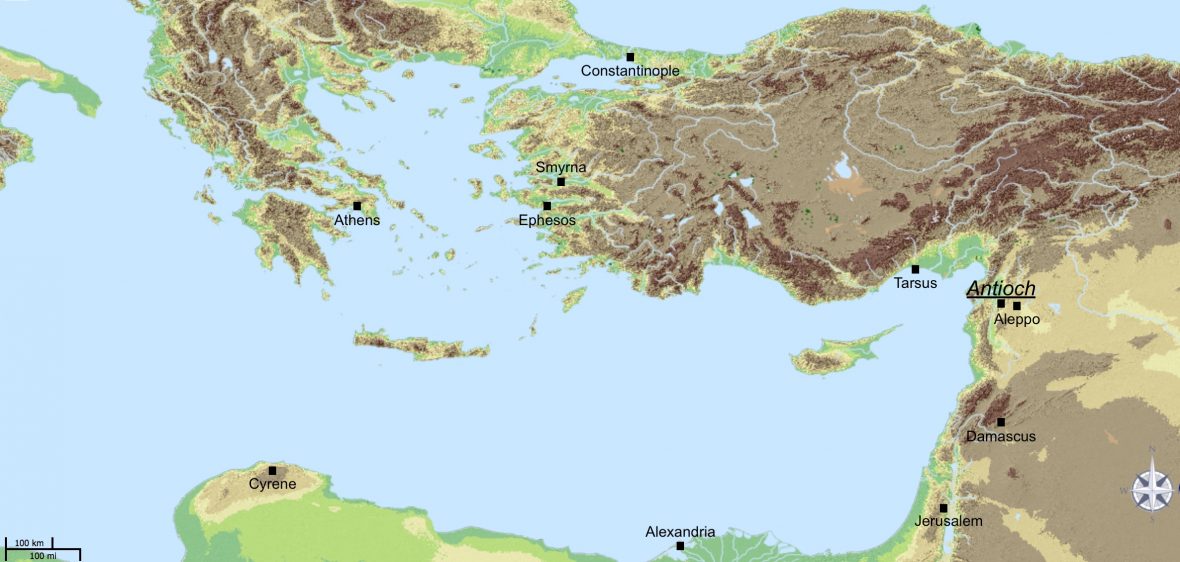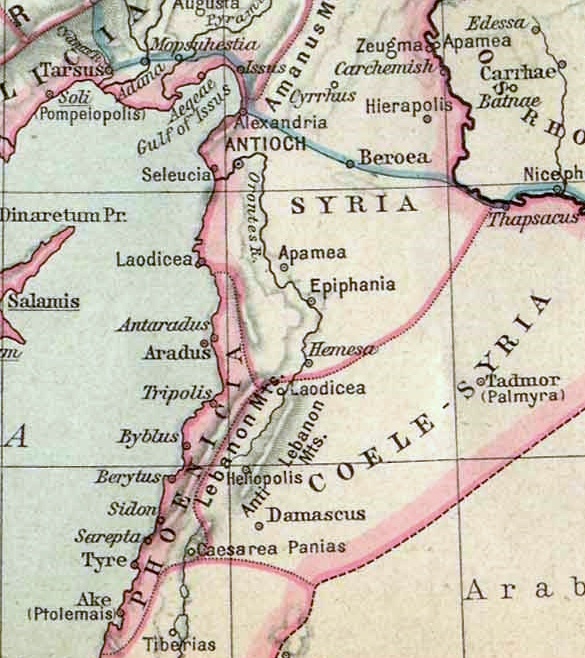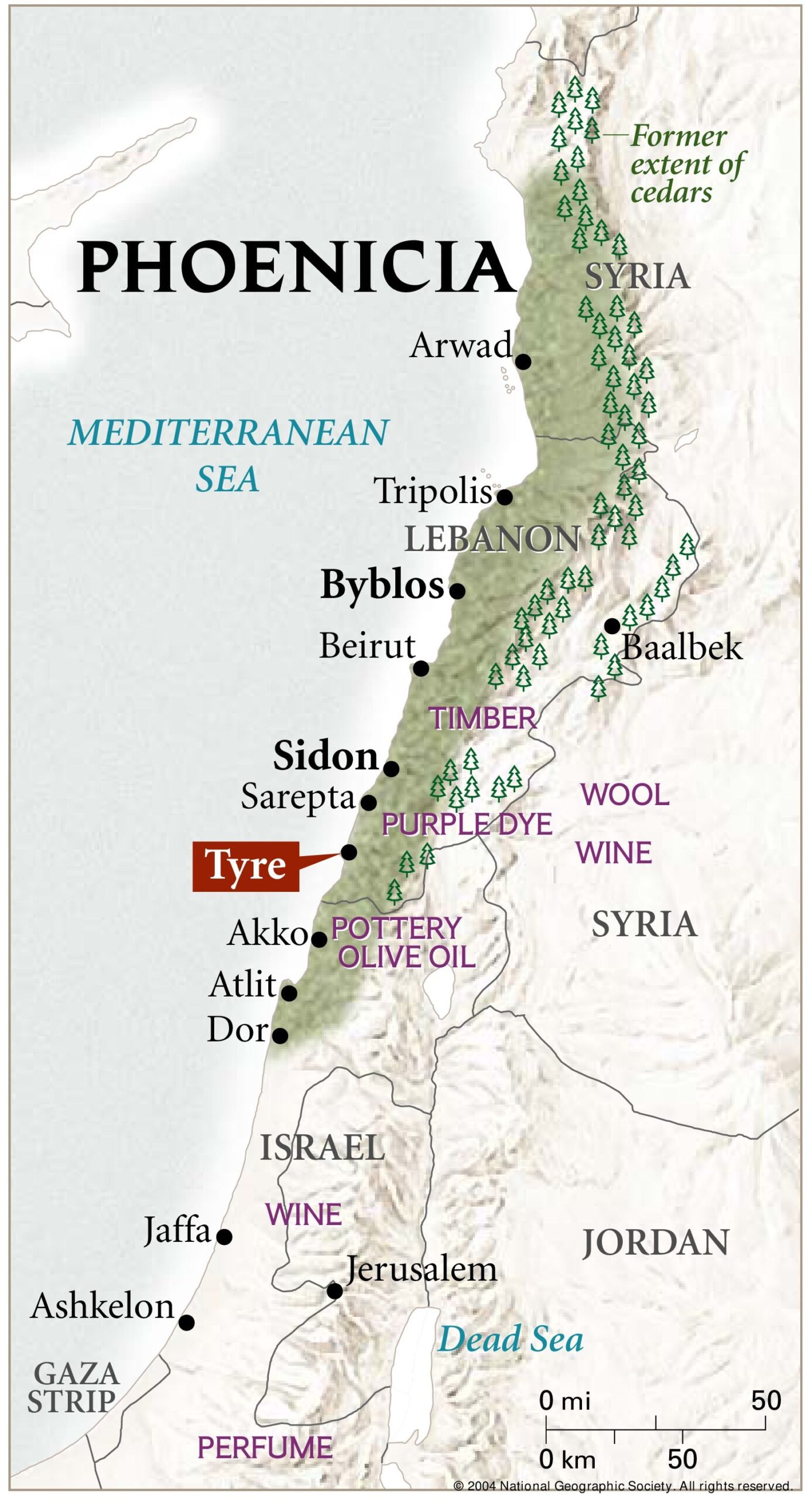One of the Biblical accounts of the Birth of Jesus appears in the book of Luke. Most people believe that a physician named Luke wrote both the Biblical books of Luke and Acts. Most people think that Luke was of Greek heritage but that he was born in Antioch, which was a city in Ancient Syria–across the Mediterranean Sea from Greece.

Image Credit: Abraham Study Hall
On the above map, Athens is in Greece. Antioch was across the sea in ancient Syria. Yet, Antioch was a Greek settlement.
Antioch
“The city’s foundation (in 300 b.c.) marks the emergence of the three-sided concert of Hellenistic powers after the generation of upheavals that followed Alexander’s death. [Alexander the Great was Greek.] Seleucus, one of the victors at Ipsus (301 b.c.), extended his eastern kingdom into the territory Antigonus had held along the Mediterranean in Syria. He founded a new capital, Seleucia, on the coast, and Antioch (named presumably after his father rather than his son) as its counterpart, a day’s journey inland from it. This second city was to prove more secure against attack from the sea, and better related to the network of land communications. During the reign of Antiochus I (281/0-261 b.c.), the son of Seleucus, it displaced Seleucia as the Seleucid capital. …
“The inhabitants of the new city were mainly Greeks and Macedonians, discharged soldiers of Seleucus’ army or settlers from Antigoneia, the nearby capital of the former ruler, which was broken up. In later times Antioch prided itself on the Athenian element in its makeup. Some Jews were no doubt present from the beginning….” Encyclopedia of the Bible
I am relating this information to explain why the Greek physician and scholar did not live in Greece. I find this interesting in seeking to know who probably wrote one of the accounts of the Birth of Jesus. Luke’s heritage will be very important later, as he joined Paul on his missionary trips to Greece. Luke spoke and wrote Greek, and he was familiar with the Greek culture. Luke was not a Jew. He was a Gentile, and this became important in sharing the gospel of Jesus throughout the Gentile world.

Image Credit: Wikipedia
Antioch was just above Phoenicia, which was famous for trading. If you look toward the bottom of the above map, you will see the Coastal City of Tyre, which was one of the places where purple dye was made, Tyre was a Phoenician city, but it was a center of Greek culture and learning.

Map of the Phonecian Shoreline
Image Credit: Reddit
The Ancient Greek Civilization was one of the earliest. The ancient Greeks were farmers, but as the area became more populated, there was an insufficient amount of farming land to provide an adequate amount of food. To seek more farmland, the ancient Greeks began establishing colonies in other areas.
Greek Colonies
.Many Greek communities sent people across the sea, “The ancient Greeks made many preparations before starting a journey to a new land. Often, they began by consulting an oracle to ask the Greek gods whether their efforts would be successful. An oracle was a holy person who the Greeks believed could communicate with the gods.
“Next, the colonists gathered food and supplies.
“They took a flame from their town’s sacred fire so they could start a sacred fire in their new home.
“Greek colonists faced many hardships.
“They had to take a long sea voyage and then find a good location for their colony.
“They looked for areas with natural harbors and good farmland. They tried to avoid places where the local people might oppose the new colonies.
“Finally, they had to build their new community and make it successful.
“The Greeks established colonies over a period of more than 300 years, from 1000 to 650 B.C.E.
“The first group of settlers started a colony called Ionia, in Asia Minor, in what is present-day Turkey.” History Alive

Image Credit: Reddit
Asia Minor is next door to the Bible Lands in the Fertile Crescent. Mesopotamia and the original homes of Noah and Abraham were in the Fertile Crescent– farther away from the sea. Antioch was 15 miles from the sea and toward the top of the Fertile Crescent
Phoenecia was another great trading center. Phoenicia was on the sea, and it was a famous trading port
Notice the town Tyre on the above map, Tyre was famous for its production of purple cloth.
Thyatira was also famous for its production of purple dye. Thyatira was in Asia Minor. The Greek lady Lydia, who is mentioned in the Bible as a seller of purple dye, was from Thyatira.
=
Discover more from Jacki Kellum
Subscribe to get the latest posts sent to your email.